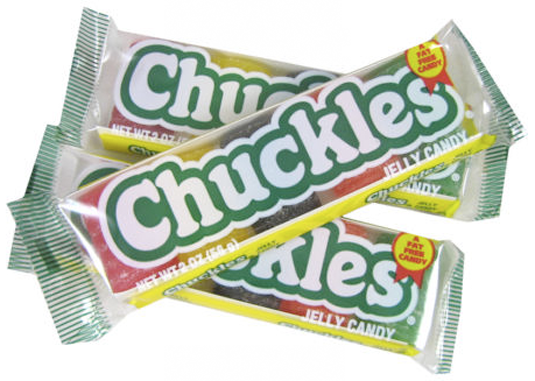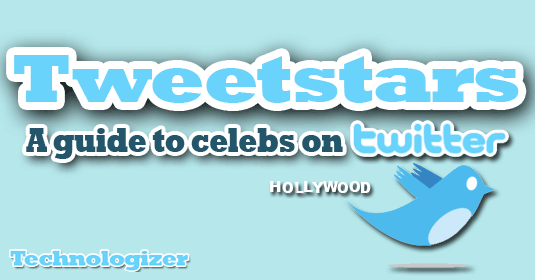 What I’m reading this morning:
What I’m reading this morning:
Twitter-like makeover for Facebook.
Ballmer: Windows Mobile needs work.
Amazon’s selling used video games.
Pogue slams Samsung’s Memoir phone.
Facebook spurns poor Ms. Batman.
Windows 7’s revamped UAC: useless?
 What I’m reading this morning:
What I’m reading this morning:
Twitter-like makeover for Facebook.
Ballmer: Windows Mobile needs work.
Amazon’s selling used video games.
Pogue slams Samsung’s Memoir phone.
Facebook spurns poor Ms. Batman.
Windows 7’s revamped UAC: useless?
 Skittles, the venerable candy (which I tend to confuse with its Mars, Inc. stablemate Starburst Fruit Chews) is trying something hip and happening today: It’s turned its homepage over to a Twitter search feed for “skittles.” Obvious result: All of a sudden, Skittles is a hot topic on Twitter. Kind of. Actually, almost none of the conversation about the stuff has to do with any of the things that make Skittles Skittles: It’s just folks mentioning Skittles to get on the Skittles home page. Including saying disgusting, scary, and/or offensive things about Skittles.
Skittles, the venerable candy (which I tend to confuse with its Mars, Inc. stablemate Starburst Fruit Chews) is trying something hip and happening today: It’s turned its homepage over to a Twitter search feed for “skittles.” Obvious result: All of a sudden, Skittles is a hot topic on Twitter. Kind of. Actually, almost none of the conversation about the stuff has to do with any of the things that make Skittles Skittles: It’s just folks mentioning Skittles to get on the Skittles home page. Including saying disgusting, scary, and/or offensive things about Skittles.
Unlike GM’s famous backfire with its Chevy Tahoe user-generated commercial contest, the Skittles stunt, I suspect, was never about getting people to talk earnestly about the features and benefits of the product in question. I suspect that Mars knew that much of the chatter would be self-referential, strange, and obnoxious. The goal was to co-opt Twitter, period, even if it led to people theorizing that Skittles might be made in Chinese sweatshops from the blood of kittens. Call it social-media marketing nihilism.
(Actually, come to think of it, is it even possible to say positive things about Skittles beyond expressing a fondness for their taste? The damn things just don’t have much in the way of personality beyond being colorful, sweet, and vaguely fruit-flavored–by comparison, Peanut M&Ms or Three Musketeers are deep, profoundly Proustian foodstuffs. Which might be why Mars went the direction it did with this party trick: It’s hard to imagine many people talking about Skittles otherwise.)
I’m reminded of Burger King’s Whopper Sacrifice campaign from January, which had the fast-food giant doling out free hamburgers to people who unfriended compatriots on Facebook. It got people talking about Burger King for sure, but it also involved gaming somebody else’s world to promote junk food. Some people called Facebook clueless when it quashed Burger King, but I kind of got the point.
I like Twitter. I like the fact that it’s an open, rambunctious, and honest reflection of what millions of people feel like talking about on any given day–so call me a humorless old fogy if you will, but today’s explosion of manufactured interest (aka unpaid product placement) for Skittles kind of ticks me off. I assume it’ll be brief, but I’d shed no tears if Mars came to regret the whole idea. Somehow, though, I think it would only do so if the campaign led to a sharp decline in Skittles sales–and maybe not even then. I’m guessing that other marketers will eyeball today’s prank jealously, and try to top it with even more over-the-top, obnoxious takeovers of social-media sites.
Me, I’ve bought no Skittles in this decade–actually, I don’t recall buying any in the 1990s, either–so a personal boycott wouldn’t have any effect on sales. The best I can do to protest is to buy and consume the fruit-flavored wares of a Skittles rival manufactured by someone other than Mars. Say, Jujubes. No–Chuckles. Definitely Chuckles.

Random side note as long as I’m talking about empty calories and social media: Slim Jim has its own social network that has very little to do with processed meat snacks, but does try to associate its product with having “absolutely no regard for proper conduct or state laws of any kind.” It also makes a funny about shaving the neighbor’s cat. Again, call me a boring old person if you will, but I’d love to hear Slim Jim manufacturer ConAgra reconcile this stuff with the blathering it does about corporate values and responsibility.
You gotta wonder how the company would feel about Slim Jim fans vandalizing its headquarters–a violation of both proper confuct and, I’d imagine, state law–and then impishly blaming it on their “spicy side.” And if ConAgra CEO Gary Rodkin has any pets, I hope he keeps them inside.
But I’ll say this for Slim Jim’s experiment in marketing through social networking: Unlike Skittles, it created its own playground rather than taking over someone else’s…
 March? In. Like a lion!
March? In. Like a lion!
Skittles stages goofball Twitter stunt.
Apple desktop event rumors begin.
Microsoft scuttlebutt: Live Search revamp.
iPhone becomes an ancient Mac.
AT&T: bring back your handset?
Foxmarks becomes Xmarks, adds features.
 Good morning–news is served:
Good morning–news is served:
Nokia might make Symbian laptops.
Google Street View’s user photos.
Google News gets ads. Finally.
Find iPhone vulnerability, get money.
The president isn’t Tweeting nowadays.
LG phone sports detachable keyboard.
Jeepers, more Microsoft-Yahoo speculation.
Rumors about PSP successor persist.
Is Windows Mobile 6.5 obsolete?
Vista SP2 release candidate imminent.
Dell’s 10-inch netbook arrives.
 Looks pretty quiet out there:
Looks pretty quiet out there:
Microsoft’s advice: Get Vista. Now!
Shorty Awards honor popular Tweeters.
Fujitsu’s $900 e-book does color.
 Twitter may yet prove that it is more than the gilded plaything of venture capitalists , and a productivity killer for those of us who tweet while we should be working. In an interview with UK-based Marketing newspaper, co-founder Biz Stone said that the company was identifying ways to charge for commercial accounts.
Twitter may yet prove that it is more than the gilded plaything of venture capitalists , and a productivity killer for those of us who tweet while we should be working. In an interview with UK-based Marketing newspaper, co-founder Biz Stone said that the company was identifying ways to charge for commercial accounts.
Stone told Marketing, “We are noticing more companies using Twitter and individuals following them. We can identify ways to make this experience even more valuable and charge for commercial accounts,” without specifying how much the company would charge. In a Twitter blog post today, he stressed that the company isn’t ready to make any announcements about how it’ll make money. But he did say “we hope to begin iterating on revenue products this year,” which is Silicon Valleyspeak for “Sooner or later we’re gonna need to make some money.”
An actual revenue model –fancy that. Twitter’s popularity has exploded, but there has not been so much as a single advertisement served up on its Web site. Since it is unlikely that anyone will pony up another $500 million offer to buy it out anytime soon (as Facebook is rumored to have done), it’s time for Twitter to face up to the reality of 2009 and earn some money.
Since its inception, venture capitalists Bezos Expeditions, Digital Garage, Spark Capital, and Union Square Ventures have showered a combined $20 million in private equity on Stone and crew. Meanwhile, Twitter hasnever publicly explained (or demonstrated) how it would turn a profit.
Now that it has an established user base, it makes perfect sense for Twitter to leverage the direct access that it has afforded brands to their customers. Twitter has the opportunity to create several products that could keep the failwhale at bay, and to keep its employees’ lights on.
 Not that much happening, apparently….
Not that much happening, apparently….
Windows 7 beta getting yanked.
The Dalai Lama wasn’t tweeting.
Another prediction of $99 iPhones.
iTunes gets digital Marvel comics.
Apple nixed Android multi-touch?
Microsoft’s ten thousandth patent granted.
Kaspersky’s customer database gets exposed.
 It’s Monday morning, and I’m blushing: Over at ZDNet, Jason Hiner has posted a list of “The Ten Best Techies Worth Following on Twitter.” It includes eight folks who I follow, one who I didn’t know about (but will add to my list), and….me. At #1. I’m startled and honored. And I’ll try to rip off Jason’s idea soon by providing a list here of some of the tech Twitterers who I find consistently intelligent, interesting, and entertaining.
It’s Monday morning, and I’m blushing: Over at ZDNet, Jason Hiner has posted a list of “The Ten Best Techies Worth Following on Twitter.” It includes eight folks who I follow, one who I didn’t know about (but will add to my list), and….me. At #1. I’m startled and honored. And I’ll try to rip off Jason’s idea soon by providing a list here of some of the tech Twitterers who I find consistently intelligent, interesting, and entertaining.
People who haven’t quite figured out Twitter yet sometimes ask me why I spend so much time on it, and the answer, of course, is because it’s fun. I Tweet mostly to amuse myself–but this is a fabulous egoboost. Thanks, Jason!
 Beloved sitcom stars. Sports legends. A meaningful percentage of the crew of the Starship Enterprise. The next president of the United States. They’ve all been known to spend time shooting the breeze on Twitter–okay, some more than others–and you can spend quality time with them.
Beloved sitcom stars. Sports legends. A meaningful percentage of the crew of the Starship Enterprise. The next president of the United States. They’ve all been known to spend time shooting the breeze on Twitter–okay, some more than others–and you can spend quality time with them.

It’s rude to buttonhole a famous person in public and demand chit-chat from him or her. It’s also arguably gauche to friend one on Facebook unless he or she is, in fact, your friend. But famous people on Twitter? They’re there to be followed, and if you send an @reply their way, they just might respond. Here’s a decidedly incomplete look at noted personages from outside the tech world who tweet; feel free to follow any or all of ’em–some have tens of thousands of Twitterpals already, but a few could probably use the companionship. (Hey, I know I could: I’m @harrymccracken.)
Disclaimer: I think these are all the real accounts of the folks in common, but I’ve never laid eyes on any of them at the keyboard…
